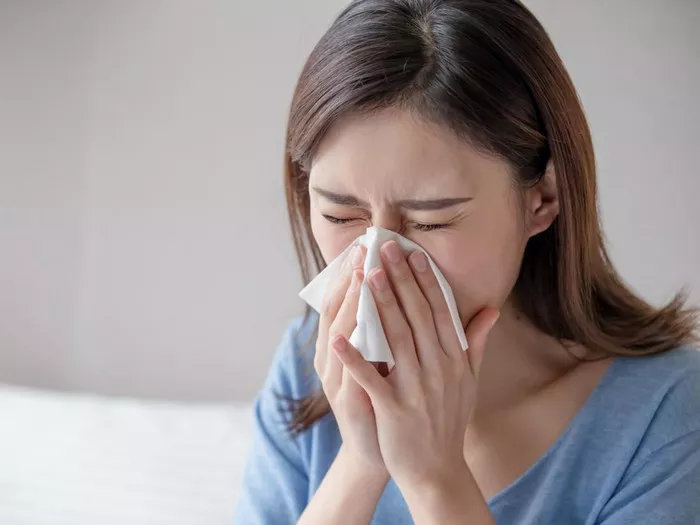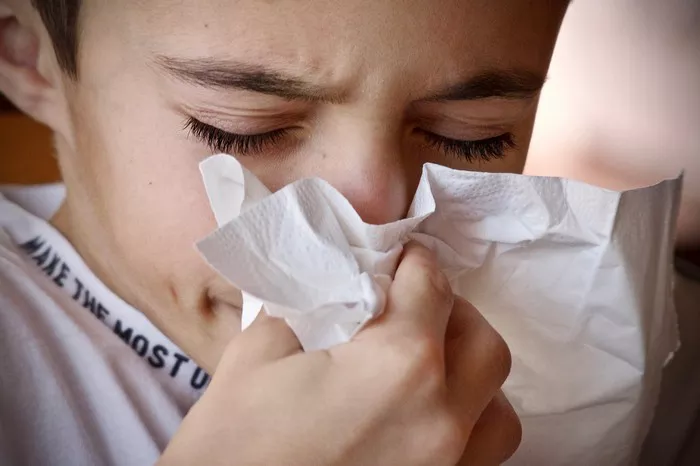Dry throat, often accompanied by itching, irritation, and discomfort, is a common symptom experienced by individuals with allergies. Allergies trigger the body’s immune response, leading to inflammation and irritation in the throat. While managing allergies themselves is crucial, addressing the symptoms they cause, including dry throat, is essential for maintaining comfort and overall well-being. Understanding the causes and effective remedies for dry throat due to allergies can significantly improve one’s quality of life.
Understanding Allergic Rhinitis and Its Impact on the Throat
Allergic rhinitis, commonly known as hay fever, is a prevalent allergic condition characterized by inflammation of the nasal passages. When allergens such as pollen, dust mites, pet dander, or mold spores are inhaled, the immune system reacts by releasing histamines, causing symptoms like sneezing, nasal congestion, and itching. However, allergies can also affect the throat.
The Link Between Allergies and Dry Throat
When allergens enter the body through the respiratory system, they can trigger inflammation not only in the nasal passages but also in the throat. This inflammation leads to various symptoms, including dryness, soreness, and irritation in the throat. Additionally, post-nasal drip, a common symptom of allergic rhinitis, can contribute to a sensation of dryness and discomfort in the throat as excess mucus drips down the back of the throat.
Effective Strategies for Managing Dry Throat Due to Allergies
Identifying and Avoiding Allergens: The first step in managing dry throat caused by allergies is identifying the specific allergens triggering the reaction. Common allergens include pollen, dust mites, pet dander, mold spores, and certain foods. Once identified, taking steps to minimize exposure to these allergens can significantly reduce symptoms. This may involve using air purifiers, regularly cleaning living spaces, and avoiding outdoor activities during peak pollen seasons.
Maintaining Indoor Air Quality: Improving indoor air quality can help reduce allergen exposure and alleviate symptoms of allergic rhinitis and dry throat. Use high-efficiency particulate air (HEPA) filters in air conditioning and heating systems to trap allergens. Additionally, keeping windows closed during high pollen seasons and using a dehumidifier to control humidity levels can further minimize allergen exposure indoors.
Nasal Irrigation: Nasal irrigation, also known as nasal saline irrigation or nasal rinsing, involves flushing out the nasal passages with a saline solution. This process helps remove allergens, irritants, and excess mucus, providing relief from nasal congestion and post-nasal drip. Nasal irrigation devices, such as neti pots or saline nasal sprays, can be used regularly to maintain nasal hygiene and alleviate dry throat symptoms.
Hydration: Staying well-hydrated is essential for maintaining moisture in the throat and alleviating dryness. Drinking plenty of water throughout the day helps keep the mucous membranes in the throat hydrated, reducing discomfort and irritation. Opting for warm liquids, such as herbal teas or broths, can provide additional soothing relief for a dry throat.
Humidification: Using a humidifier in the bedroom or other commonly used areas can add moisture to the air, preventing dryness and irritation in the throat. Cool mist humidifiers are ideal for allergy sufferers, as they do not promote the growth of mold or bacteria. However, it’s important to clean humidifiers regularly to prevent the buildup of mold and other allergens.
Throat Lozenges and Sprays: Over-the-counter throat lozenges and sprays can provide temporary relief from dry throat symptoms. These products often contain ingredients such as menthol, honey, or soothing herbs that help moisturize the throat and alleviate irritation. However, it’s essential to choose products that are suitable for individuals with allergies and to read the labels carefully to avoid potential allergens.
Steam Inhalation: Inhaling steam can help alleviate nasal congestion and soothe a dry throat. Adding a few drops of essential oils, such as eucalyptus or peppermint, to hot water can enhance the steam’s therapeutic effects. Be cautious to avoid burns and ensure proper ventilation to prevent excess humidity buildup in the room.
Allergy Medications: Over-the-counter and prescription allergy medications, such as antihistamines, decongestants, and nasal corticosteroids, can help reduce inflammation and alleviate allergy symptoms, including dry throat. However, it’s essential to consult a healthcare professional before starting any medication regimen, as some medications may cause side effects or interact with other medications.
Conclusion
Dry throat caused by allergies can be a bothersome symptom that significantly impacts daily comfort and quality of life. By understanding the underlying causes of allergic rhinitis and implementing effective strategies for managing allergen exposure and alleviating symptoms, individuals can find relief from dry throat and enjoy improved well-being. However, if symptoms persist or worsen despite home remedies and lifestyle modifications, it’s crucial to seek medical advice from a healthcare professional for proper evaluation and treatment. With the right approach, individuals can effectively manage dry throat associated with allergies and lead a more comfortable and fulfilling life.
[inline_related_posts title=”You Might Be Interested In” title_align=”left” style=”list” number=”6″ align=”none” ids=”6090,6092,6081″ by=”categories” orderby=”rand” order=”DESC” hide_thumb=”no” thumb_right=”no” views=”no” date=”yes” grid_columns=”2″ post_type=”” tax=””]
































